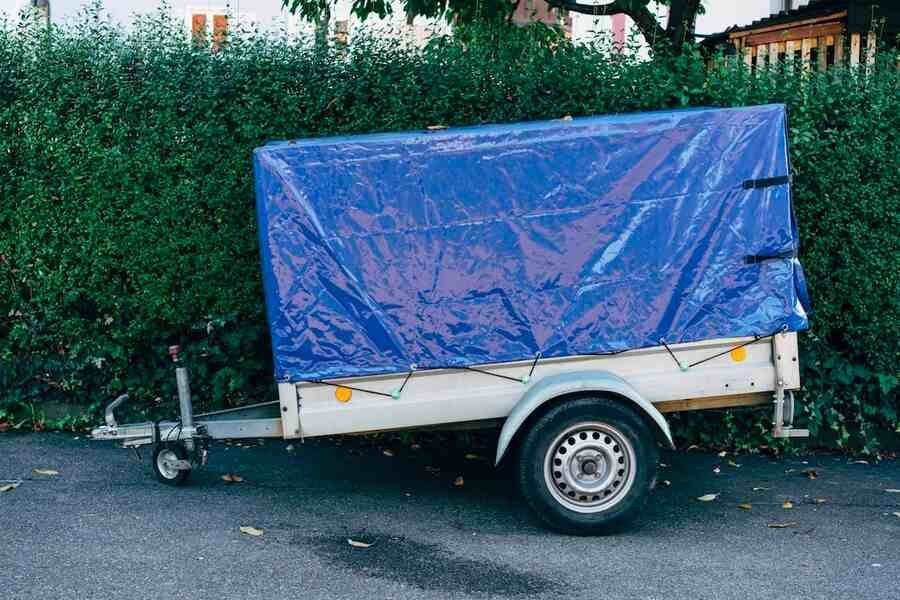Moving to a new home can be an exciting but costly endeavor. From hiring professional movers to purchasing packing supplies, the expenses can quickly add up if you’re not careful. To ensure a smooth transition without breaking the bank, it’s essential to create a moving budget.
By carefully planning your expenses, you can take control of your financial situation and make informed decisions throughout the moving process. In this article, we will guide you through the steps of creating a comprehensive moving budget that covers all your expenses.
Moving can be a daunting task, but with proper planning, it doesn’t have to be overwhelming. One of the key aspects of a successful move is managing your finances effectively. By creating a moving budget, you can estimate your expenses, avoid surprises, and make informed choices. Let’s dive into the steps involved in planning your moving budget.
Assess Your Moving Needs
Before you start budgeting, it’s crucial to assess your moving needs. Consider the following factors to determine the scope of your move:
Determine the distance of your move
The distance of your move plays a significant role in your budget. Whether you’re moving locally or long-distance, transportation costs will vary. Take into account the mileage and fuel expenses associated with your move.
Evaluate the size of your household
The size of your household will impact the overall cost of the move. A larger home requires more packing supplies, a bigger truck, and potentially more movers. Assess the number of rooms and the amount of furniture and belongings you need to relocate.
Consider additional services
Do you require additional services such as packing, unpacking, or furniture assembly? These services can make your move more convenient but come at an additional cost. Evaluate whether you need these services and factor them into your budget.
Research Moving Companies
Choosing the right moving company is crucial for a smooth and stress-free move. Researching and comparing different companies will help you find the best fit for your needs and budget. Here’s what you should do:
Get recommendations and read reviews
Ask friends, family, or colleagues for recommendations on reliable moving companies. Additionally, read online reviews to gather insights about the quality of service provided by various movers.
Request quotes from multiple companies
Contact several moving companies and request detailed quotes. Provide them with accurate information about your move, including the distance, size of your household, and any additional services required. Compare the quotes to find the most cost-effective option.
Check for licensing and insurance
Ensure that the moving company you choose is properly licensed and insured. This will protect you from any potential liabilities during the move. Verify the credentials of the moving companies you’re considering before making a final decision.
Calculate Transportation Costs
Transportation costs are a significant component of your moving budget. To estimate these expenses accurately, consider the following factors:
Decide on the moving method
Will you be renting a truck and handling the move yourself or hiring professional movers? The choice of moving method will impact your transportation costs. Research the rental fees for trucks or the costs associated with hiring movers to make an informed decision.
Estimate fuel expenses
If you’re handling the move yourself, estimate the fuel expenses based on the distance of your move and the fuel efficiency of the truck. Fuel prices can fluctuate, so it’s wise to allocate a buffer in your budget for any unexpected increases.
Consider tolls and parking fees
If your move involves toll roads or parking fees, account for these costs in your budget. Research the toll rates and parking fees along your route and allocate funds accordingly.
Budget for Packing Supplies
Packing supplies are essential for safeguarding your belongings during the move. Here’s how you can budget for them effectively:
Make a list of required supplies
Create a comprehensive list of all the packing supplies you’ll need, including boxes, bubble wrap, packing tape, and labels. Having a detailed list will help you estimate the quantity and cost of each item accurately.
Research prices and compare options
Look for affordable suppliers of packing supplies in your area. Compare prices and quality to find the best deals. Consider purchasing used boxes or borrowing them from friends or local businesses to save money.
Allocate funds for packing materials
Once you have an idea of the prices, allocate a portion of your budget specifically for packing supplies. It’s better to overestimate the cost slightly to avoid running out of supplies during the packing process.
Plan for Utility Transfers and Deposits
Transferring utilities to your new home and potentially paying deposits can be easily overlooked but shouldn’t be neglected. Here’s what you should do:
Notify utility providers
Inform your current utility providers about your move and schedule the disconnection of services at your old address. Also, inquire about any pending bills or refunds that need to be settled.
Set up new utility accounts
Contact utility companies at your new location to establish new accounts. Inquire about any installation fees, connection charges, or deposits required. Factor these costs into your budget.
Budget for possible deposits
Some utility providers may require a deposit, particularly if you have no previous payment history with them. Research the deposit requirements for your new utilities and include these amounts in your budget.
Consider Temporary Storage
If you need to store your belongings temporarily during the moving process, it’s essential to include storage costs in your budget. Follow these steps to plan for storage effectively:
Evaluate the need for storage
Assess whether you require temporary storage. Factors such as the availability of your new home, delays in moving, or downsizing may necessitate storing your belongings for a period.
Research storage options and costs
Look for reputable storage facilities in your area. Compare prices, security features, and accessibility to find the best storage solution for your needs. Request quotes and inquire about any additional fees or insurance requirements.
Include storage fees in your budget
Once you’ve determined the storage facility and the duration of storage, allocate funds in your budget to cover the storage fees. Remember to account for any potential price increases or additional charges that may apply.
Keep Track of Your Budget
Creating a moving budget is not a one-time task; it requires ongoing monitoring and adjustments. Follow these steps to stay on top of your budget:
Create a moving budget spreadsheet
Use a spreadsheet to track your moving expenses. Categorize your expenses, record the amounts spent, and calculate the total. This will provide a clear overview of your budget and help you identify areas where you can cut costs if needed.
Monitor and update your expenses regularly
Regularly update your budget spreadsheet with the latest expenses. Keep all receipts and invoices for reference. This will allow you to see the progress of your budget and make informed decisions along the way.
Adjust your budget as necessary
As you gather more information about costs or encounter unexpected expenses, adjust your budget accordingly. It’s essential to be flexible and adapt your budget to ensure you stay within your financial limits.
What To Know About The Moving Budget
Creating a moving budget is a crucial step in managing your expenses and ensuring a smooth transition to your new home.
By assessing your moving needs, researching moving companies, calculating transportation costs, budgeting for packing supplies, planning for utility transfers and deposits, considering temporary storage, accounting for insurance, budgeting for travel expenses, factoring in miscellaneous costs, and keeping track of your budget, you can effectively plan your expenses and alleviate financial stress during the move.
Make sure to stay organized, review your budget regularly, and make adjustments as necessary. By following these steps, you’ll be well-prepared to handle the financial aspects of your move and enjoy a successful transition to your new home.
Recommended Posts:









